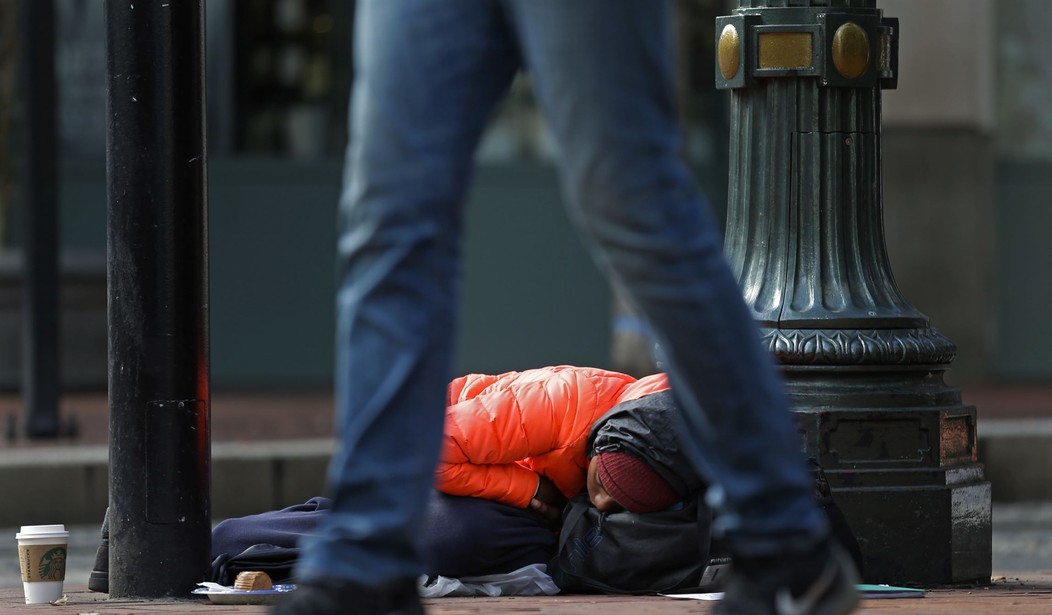It would be funny were it not so incredibly pathetic. A county-run drug counseling center for homeless drug addicts in Portland had to be shut down and some of its employees were dumped because of drug use and “inappropriate relations” between employees. In other words, a drug and sex scandal shut down the Multnomah County Behavioral Health Resource Center.
The punchline writes itself. But the joke’s on the voters.
Willamette Week reports that at first, Multnomah County lied about why the center was temporarily closed, saying “the county insisted at the time the closure was prompted by the need for more staff training to deal with clients in mental distress and for building improvements.”
“Staff training”? It turns out that contractors with the Behavioral Health Resource Center needed training in how not to do drugs and have sex on the job.
The center has now reopened but only after Multnomah County coughed up the real reason why it had to shut down the behavioral center.
But two hours before county officials were slated to hold a press conference about the center’s reopening, the county sent out a statement changing that story. It wrote that a March 29 complaint had alleged contracted employees working at the center had used illicit drugs—what the county referred to as “powder”—on the premises. The complaint also alleged staffers from three contracted organizations had engaged in “inappropriate relationships” with one another.
Those contractors were DPI Security, Mental Health & Addiction Association of Oregon, and janitorial company Northwest Success.
And at least one so-called security guard smoked weed on the job but said he toked up out of the view of the homeless drug addicts, so that’s a relief. Some of DPIs guards are armed.
We guess the people working for all the NGOs getting grants to do the county’s job have fallen victim to Oregon’s free-wheeling access to drugs. If everyone’s on drugs then why bother to be sober? It’s not like the high, homeless addicts will notice, right?
Measure 110, legalizing the personal use of hard drugs, was passed by Oregon’s dumb voters with 58% of the vote during the pandemic. The George Soros-backed group that fronted this destructive measure did it during the Summer of Love riots against the man.
Measure 110 was sold as a way for law enforcement to leave law-abiding drug takers alone. But things didn’t work out that way. The law has resulted in more drugged-out zombies lying on Portland’s streets.
Related: Another Premier Business Bails Out of Violent and ‘Hostile’ San Francisco
The M-110 sales pitch was that few would be arrested by racist-y cops for public intoxication and other things like pooping on the sidewalk. Those who were busted were given only a ticket if they promised to seek help — at a place like the Behavioral Health Resource Center. Things haven’t worked out as planned. Portland’s become a honey trap for druggies who come from all over and simply want to smoke their rent and live in a tent without the cops bugging them.
I explained this week that one drug and alcohol counselor who helps people on the streets believes the homeless industrial complex has made things worse.
Drug and alcohol counselor Ken Dahlgren spends his time on the streets with addicts, which describes most homeless people. He said if money solved this problem then Oregon would have solved it long ago. Instead, “The fact is, over the last seven years since the Joint Office of Homeless Services was established, our crisis has gone through the roof. So, as more money is poured into solving this problem, the problem continues to grow, which means money isn’t the solution.”
The Economist outed the lie of Measure 110 when it found that the state never prepared for the job.
Under the old scheme, possession charges were a tool to get people into treatment, because punishments could be dropped if offenders agreed to seek help. However, the thinking in Oregon was that treatment was likelier to work better when it was voluntary. The citations for possession that have replaced charges come with a fine of up to $100, which can be waived with a call to a health hotline. The hope was that offenders could then be steered into rehab. But less than 5% of police actions have actually resulted in that phone call.
Oregon is ranked number one in the country for drug problems.
Once again, the state can’t change the heart of a person who needs help. You need sober, ethical people for that. Those people seem to be in short supply at the Multnomah County Behavioral Health Resource Center.
Now more than ever, you need PJ Media. Our brand of opinion journalism not only informs you of facts but also how we analyze those facts.
The bad guys are out to kill our journalism by throttling our website, scrutinizing our opinions through phony “fact checks,” and creating so-called misinformation and disinformation NGOs to elevate left-wing opinion sites above our own. It’s disgraceful and un-American.
That’s why PJ Media depends on readers like you to support our efforts. Please become a VIP MEMBER to support our journalism. Go here and use the promo code SAVEAMERICA to get 40% off your annual membership today! And thank you.










Join the conversation as a VIP Member